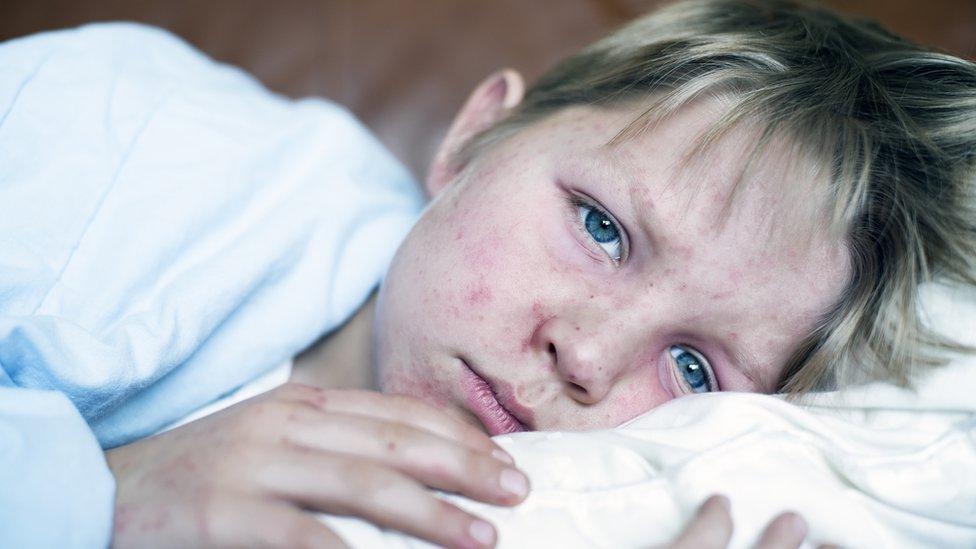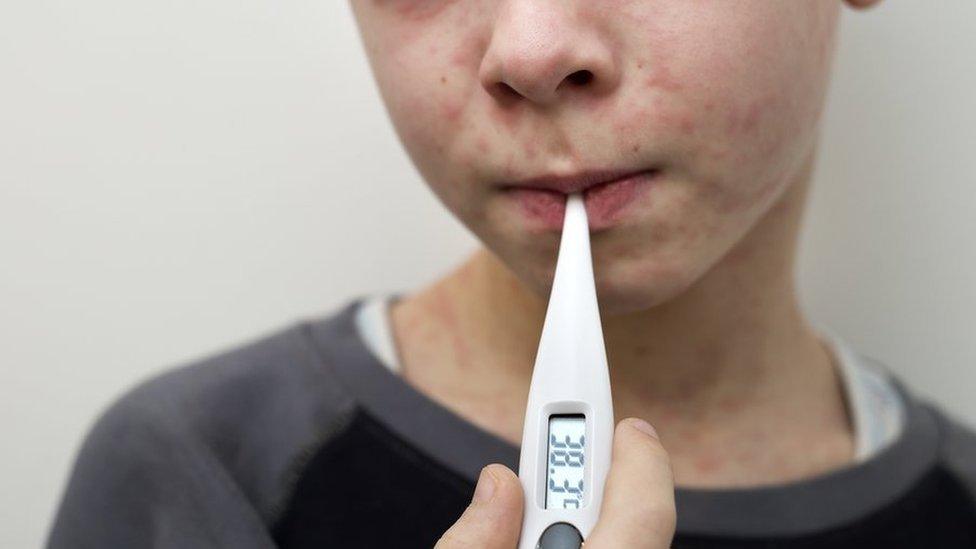Measles: Urgent Wales call on MMR vaccine for children
- Published
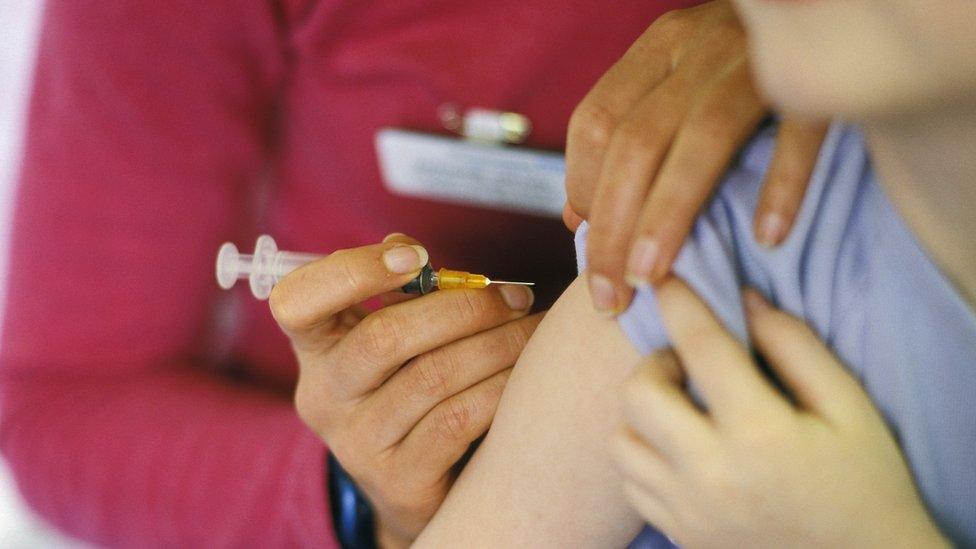
The World Health Organisation recommends 95% of children receive both doses of the MMR vaccine by the age of five
Urgent action is needed so children in Wales are fully vaccinated for measles, the chief medical officer has warned.
Sir Frank Atherton said outbreaks could become more frequent unless uptake of the measles, mumps and rubella (MMR) vaccine increased.
He said parents should arrange jabs as soon as possible if their children are not fully vaccinated.
The World Health Organization says 95% should be double vaccinated by the age of five but the UK is below the target.
Latest figures suggest 89.5% of five-year-old children in Wales have had both doses.
Across the UK, the figure is 84.5% - the lowest level since 2010-11.
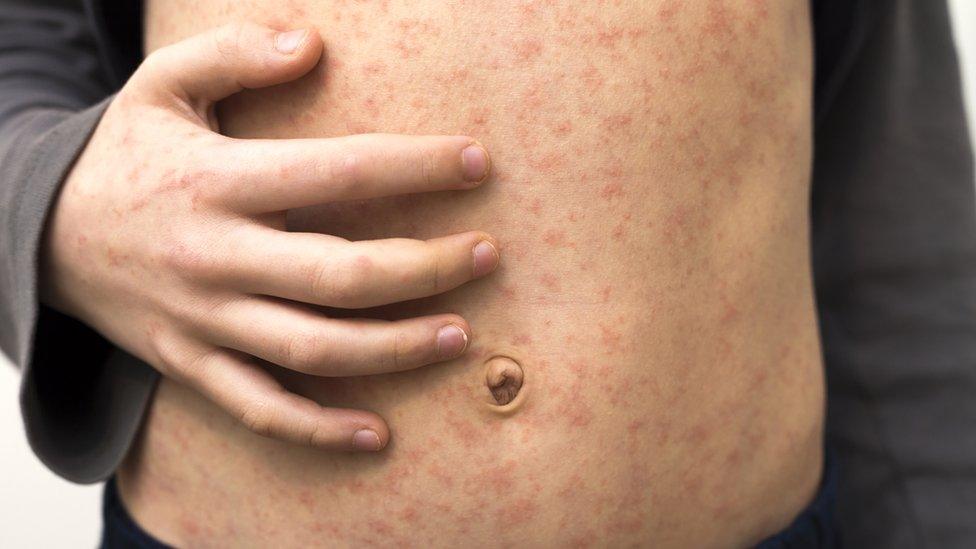
Symptoms can include a high temperature and a blotchy rash
In recent months, outbreaks of the infection have been reported across the UK in areas including Cardiff and Birmingham.
In January, Birmingham Children's Hospital reported being inundated with its highest number of cases in decades.
The highly infectious disease can spread very quickly among the unvaccinated, especially in settings like nurseries and schools.
Health boards in Wales have now been asked to target pupils in every school to boost immunisation levels.
What is the MMR vaccination?
The MMR vaccination is offered routinely as two separate courses.
The first dose is offered when a child is one, and the second dose when a child is aged three years and four months.
After both MMR doses, 99% of people are protected against measles and rubella, and 88% are protected against mumps.
What are the symptoms of measles?
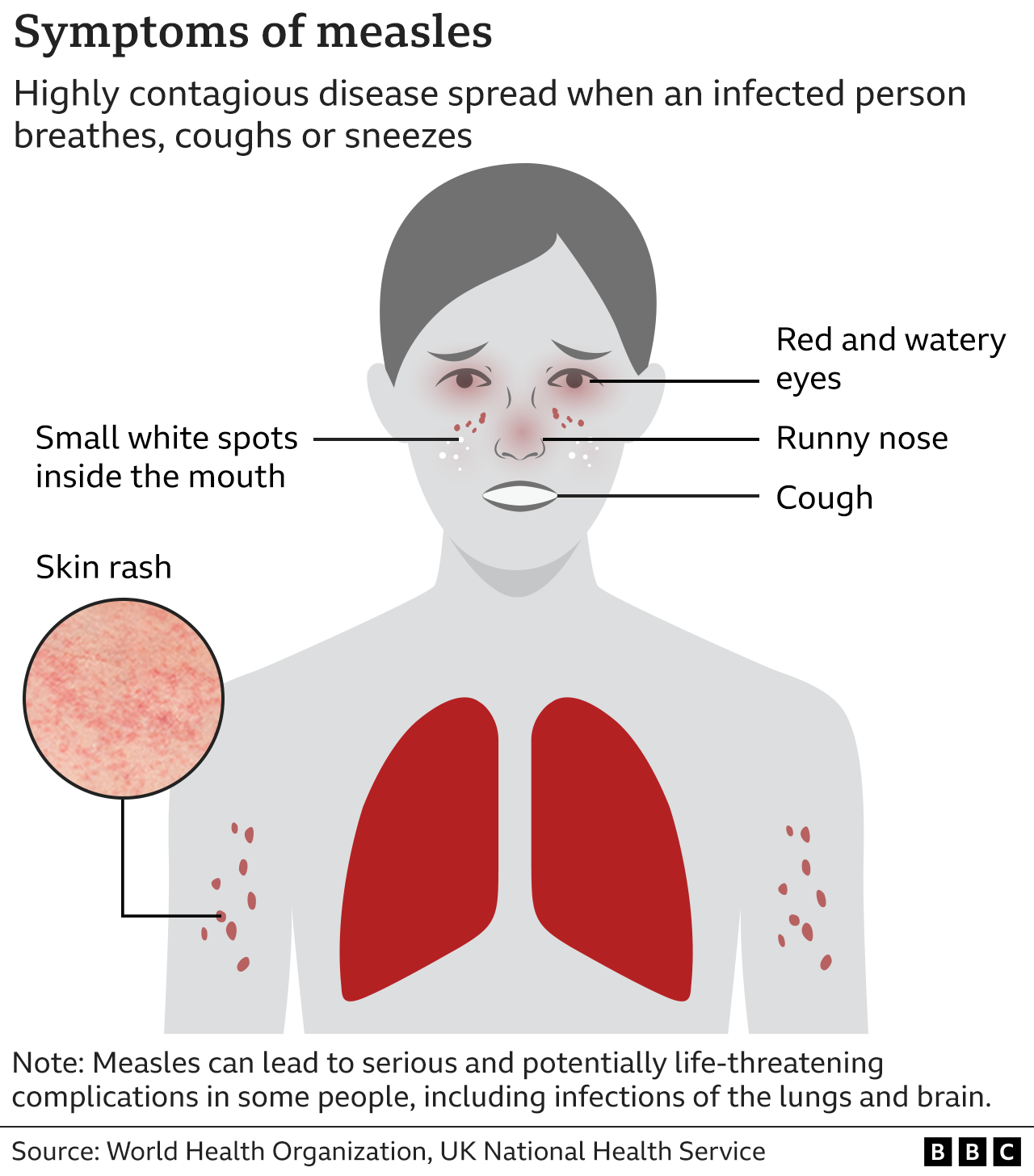
Common symptoms of measles include a high fever, sore and red eyes, coughing, and sneezing.
Small white spots may also appear inside the mouth.
A blotchy red or brown rash usually appears after a few days, typically on the face and behind the ears, before spreading to the rest of the body.
Measles normally clears up within seven to 10 days. However, complications can include pneumonia, meningitis, blindness and seizures.
Babies and young children, pregnant women and those with a weakened immune system are at increased risk.
'Protect our youngest children'
"Measles can cause children to become very ill and some who contract it will suffer life-changing complications. Parents can protect their children by checking they are fully vaccinated and where they are not, arranging for vaccination as soon as possible," Sir Frank said.
"Babies under the age of one cannot receive the vaccine. It is therefore essential that all those who are eligible, are fully vaccinated. This will help to stop the spread of measles and will help to protect our youngest children."
All health boards have been asked to take urgent action to ensure 90% of pupils in every school in Wales are fully vaccinated by the end of July.
Deputy chief medical officer Chris Jones added: "In the event of an outbreak, students and staff who are unvaccinated or under-vaccinated could be asked to isolate for up to 21 days to stop the spread of this very virulent disease.
"Public Health Wales, the NHS and the Welsh government will be working closely on further plans to boost MMR uptake levels in the coming months."
Related topics
- Published1 November 2023
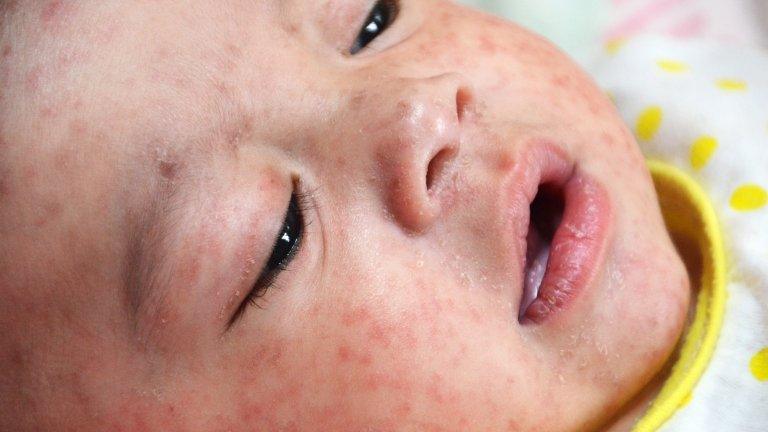
- Published23 January 2024
